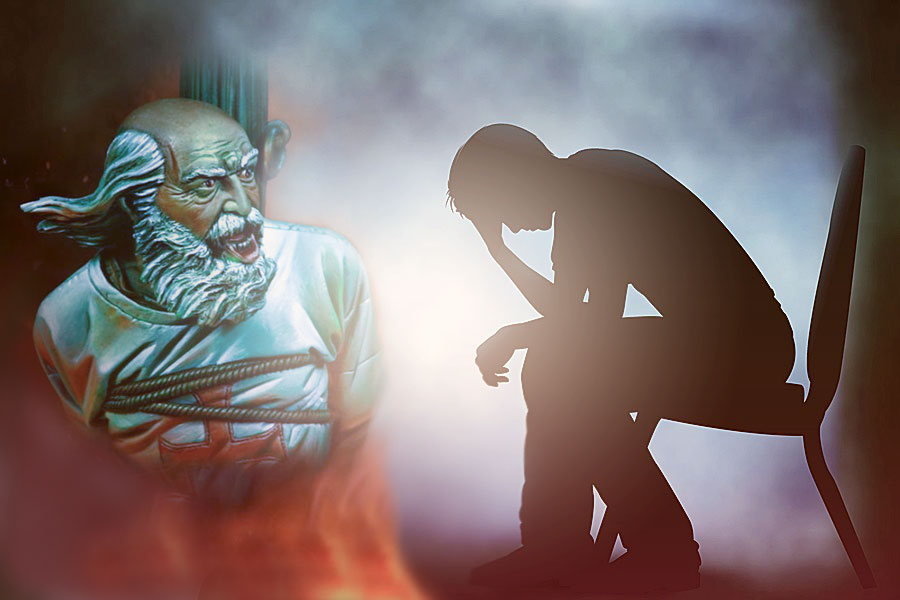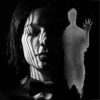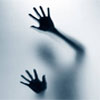Past Life Origins of Mental Illness
 by Gina Cerminara
by Gina Cerminara
The name of Freud and the term “unconscious mind” are well known today. Many persons, however, are unaware of the fact that Freud’s discovery of the unconscious mind was due to his investigations in hypnosis. It was because hypnotized subjects could recall incidents from their childhood that were completely forgotten in their conscious state that Freud was forced to postulate an “unconscious mind” to account for the preservation of the otherwise irretrievable material. Freud later abandoned hypnosis as a clinical technique because it proved unsatisfactory in many cases, and proceeded to develop other methods of exploring the unconscious depths. But hypnosis must nonetheless be regarded as the parent of psychoanalysis.
In the realm of reincarnationist psychology, hypnosis may have a similar role to play. The Cayce clairvoyance would seem to indicate that it is possible for a hypnotized subject, such as Cayce himself, to discover the past-life history of other individuals. But perhaps even more important than this, it would seem that it is possible for an individual using hypnosis, or some similar technique such as the dianetic reverie, to relive his own past lives.
Age-regression experiments in hypnosis have established the fact that there is stored in certain strata of the mind a detailed and sequential memory of every event lived through since birth. A hypnotized subject, for example, “regressed” to the age of ten and told to write his name will write it as he did at the age of ten; regressed further to the age of six will write in a still more childish scrawl; regressed to the age of three will be unable to do more than make meaningless lines with his pencil. These age-regression experiments are commonly conducted in university classes and are familiar to students in the field.
Less well known, however, is the work of the French scientist De Rochas, who in the latter half of the nineteenth century claimed that he was able, through the same age-regression techniques, to evoke memories of past-life experiences. His book Les Vies Successives (Successive Lives) has not been accorded scientific recognition; but perhaps he will one day be hailed as a pioneer in the realm of reincarnationist psychology. More recently, A.R. Martin of Sharon, Pennsylvania, has made similar studies and has published a remarkable book called Researches in Reincarnation and Beyond. Past-life memories experimentally induced in this manner would seem to be contradictory to the intention of nature at this point, or else all of us would recall our past spontaneously. Efforts such as these, however, made in the interests of science, are interesting and valuable; they may, before long, provide the final experimental laboratory evidence for the reality of reincarnation.
In turning to the instances of mental abnormality that were scrutinized by the Cayce hypnotic clairvoyance, one finds that they tend to illuminate the nature of memory and the unconscious mind and that they tend to confirm the belief that the unconscious mind is far deeper than is thought even by present-day psychoanalysts. These cases are not always evidential – that is to say, they do not always provide us with direct or indirect proof that what Cayce said about the past was true. But some of the cases are evidential at least to a degree; and those that are not can only be regarded as further fragments of the whole intricate mosaic which – once its total reasonableness is seen – automatically provides the details with credibility.
One of the most curious of the abnormalities of mental life is the phenomenon known as phobia. A phobia is generally understood by analysts to be an exaggerated fear which had its origin in a complicated series of situations or relationships conducive to antagonism, suppressed aggression, or guilt feelings of an intense nature. These submerged feelings later express themselves as an intense and seemingly irrational fear of closed places, high places, cats, thunderstorms, or some other of an almost endless variety of possible phobia objects, the object chosen having some direct or indirect relation to one of the basic precipitating experiences. The Cayce readings, however, seem to show that in some cases at least, these strong and seemingly unreasonable fears can have a very reasonable origin in some directly related experience of a past life.
One interesting example is the case of a woman who even as a young girl was afraid of closed places. In theaters, she insisted on sitting near an exit. If the bus on which she was riding became too crowded, she would get off and wait for another. On excursions to the country, she was fearful of entering caves, grottoes, or any small, enclosed place. Neither she nor the members of her family could understand this peculiar attitude, since no one could remember any unusual childhood experience that might have induced such a fear. According to the Cayce reading, the explanation was that in her past life she had been smothered when the roof of a cave collapsed upon her. The memory of this horrible death still persisted in the unconscious mind.
Another case is that of a woman who has two phobias: one of cutting instruments and the other of all furred animals, especially domestic pets. She is gripped by nervous fear whenever she sees cutting instruments close to her, or sees anyone else using them. The life reading accounted for this phobia in stating that she met death in a Persian incarnation by being run through with a sword.
Her aversion to animals is difficult to understand on the basis of her present life, since she came from a large family, all of whom had pets. Her brother in particular was very fond of animals. Yet the very sight of a cat or dog in the house repels this woman as much as the sight of a snake repels another. Furthermore, she had never been able to wear a fur coat or even a coat trimmed with a fur collar. Psychiatrists might explore her phobia in terms of her relationships to the members of her family – possibly jealousy of the brother who was especially fond of animals, for example – and explain it as an expression of antagonism. The readings, however, traced her curious aversion to an Atlantean incarnation in which she had some sort of experience in relation to repulsive creatures.
Many other phobias were similarly explained by the reading on a past-life basis. A morbid fear of darkness was attributed to a dungeon experience in France, when the entity was a political prisoner at the time of Louis XVI. A fear of sharp knives was traced to an experience in a torture chamber in France, where the entity suffered the rack and other instruments of torture. A fear of impending wholesale destruction was explained by the fact that the entity had had a Peruvian experience at the time of one of the submergences of Atlantis: he had been left alone on a high mound to which he had retired for study, and had seen the water mounting everywhere around him. An overpowering fear of wild animals was attributed to an experience in Rome, when the entity’s husband had been made to fight wild beasts in the arena. Two persons who had a morbid fear of water were told that they had been drowned in the last life; a third person who feared water was told that he had been shipwrecked in a storm, during the time of the expansion of the Roman Empire.
Examining these cases critically, from the point of view of ordinary psychology, we might wonder if in all instances there had not been a present-life situation which could adequately explain the phobia. Granted, it is conceivable that some repressed emotional disturbance might be found, but this would still not negate the possibility of anterior memory which was the true basis for the phobia. For example, the woman who had a morbid fear of closed places may have been locked in a dark closet at the age of four, and the incident forgotten. Under free association or hypnosis the incident might be unearthed, and the psychiatrist might work from that information into an understanding of emotional problems which could have caused the nervous disorder.
An important fact is often overlooked in these cases. Although it must be acknowledged that in the emotional realm algebraic equivalents are not to be expected, countless people have emotional experiences similar to those that produce phobias in others and yet do not themselves suffer from phobias. Why, then, is this particular person susceptible? If everyone who had experienced the kinds of emotional upsets to which claustrophobia is frequently attributed got claustrophobia, we would have a population of claustrophobes so great that telephone booths, dormitory rooms, one-room apartments, and some of the smarter nightclubs would need to be abolished as menaces to public health and sanity.
The answer to the problem as indicated by the Cayce data is this: that the greater nervous susceptibility of one child over another to an emotional situation may be due to a past-life experience. The present-life situation merely acts as the reawakening agent of the tragic buried impression.
By the reincarnationist view, then, we see that the unconscious mind, like a box with a false bottom, is far deeper than is ordinarily supposed. Certain analysts – notably Carl Jung – have already sensed the necessity for the existence of deeper levels in order to explain otherwise unexplainable facts of mental life and have spoken of the “collective unconscious,” “race unconscious,” or “racial memory,” on assumption that there exists a sort of reservoir of memory of racial experience which all individuals tap. Although it cannot be said with certainty that such a mass memory does not exist, it seems more difficult to accept than the theory that memory is individual and extends back in the unconscious through previous lifetimes. At least the individual memory theory cannot be said to be less plausible than a concept that holds that memories are stacked like corn in a granary and then withdrawn and used by the rest of the community. If such a phenomenon of pooled experience occurs, it would seem to be no longer a memory, in the strict sense of the term, but rather a cognition, or knowing process.
According to that point of view of the Cayce readings, an individual does have unconscious memories surging up from the ancient past, but they arise – not from some hypothetical pool of race memories, or from some long-dead ancestor, but rather from his own previous experience. All his unconscious fears and hates and loves and impulses are his own inheritance, bequeathed by himself to himself, as a man bequeaths his own today unto his own tomorrow. He himself once was a savage many times, hence it is natural for him to have certain unredeemed savage impulses. He himself once was threatened by the terrors of the jungle and the abominations of man’s cruelties, hence it is natural for him still to feel unreasoning fears and unfounded apprehensions. He himself once had good reason to hate and love many of the people whom he is now associated with; it is only natural for him now to feel seemingly irrational loves and hates toward these same people in the present.
The abnormal emergence of subterranean elements can apparently occur in other ways besides phobias. In several instances recurrent dreams were explained by Cayce on the basis of past-life experiences. One of the most interesting examples is that of the woman who asked the question: “Why in early childhood did I dream so many times that the world was being destroyed, always seeing a black destructive cloud?” The answer indicated that this dream arose from her Atlantean experience when she had been a priestess and physician. She had experienced one of the terrible cataclysmic destructions of Atlantis, and the impression remained so deeply engraved in her soul memory as to arise again repeatedly during sleep.
Another interesting case is that of a child of four who alarmed her mother because almost daily she awoke from sleep in tears and obvious distress. The child was in good physical health, and the mother wrote to Cayce for an explanation of the nervous condition. According to the reading, the child had met a violent death in France during World War II. Eager, though, to take incarnation again, she had returned to American parents only nine months later. In so short an intermission between lives the fearful memories of bombardments and fires had not been erased; and they surged upward in the child at the sleep level of consciousness.
Cases such as those just observed point unavoidably to an examination of the whole problem of memory. The first objection raised by most people against reincarnation is the fact that we do not remember our past lives. This is, indeed, a curious circumstance, and yet not so curious after all when one considers that we remember nothing of our infancy and little of our childhood. Conscious memory is so tenuous a thing, events slip by us with a fluidity so streamlike, that to say “I do not remember” is not equivalent to proof that something did not occur. If we were to ask any of our friends, “What, exactly, were you doing at 10:26 in the morning on April 5th, 1969?” we could stake our bank balance on the fact that he could not honestly, and precisely, answer the question; yet this lack of recollection of that point of time in his life by no means proves that he did not live through it.
This objection to reincarnation, therefore, is easily met – first on the score that forgetting and repression of memories is a very natural and common human phenomenon and second, on the score that the nature of memory is such that details escape us but principles remain. For example, any educated adult will be able to tell you that 7 times 7 equals 49 and 12 times 12 equals 144. He will not recall all the unhappy hours that he spent in third and fourth grade learning how to perform these operations, but the ability to perform them, and the knowledge of the facts, remain as the useful residuum in his mind of many repeated efforts of attention.
Similarly with man’s caution as to fire, his wariness as to dogs, his ability to dance, or his skill in performing anything. The ability to walk argues clearly a period of time when effort was expended in learning how to walk – though not one out of a hundred thousand people would actually remember the specific and exhaustive efforts made in order to acquire that skill.
Forgetfulness of detail, then does not invalidate memory of principle; and the answer of reincarnationists to those who raise the lack of memory objection is that man’s conscience (or level of ethical insight) and his degree of intelligence and capacity represent the carry-over of sum totals from past-life experience, the details of which have escaped him.
The second and more subtle objection raised by the opponents of the reincarnation theory is that it is not ethical to hold a personality responsible for deeds done by another personality. Consciousness of wrong, they say, surely should be present if an offender’s punishment is to have any real meaning. The reincarnationists’ answer to this objection is based on what they believe to be the relationship of the personality to the eternal identity.
The eternal identity – like an actor offstage – can remember all its past, but as soon as it takes on a personality, as an actor takes on a role, then it is prevented by a protective provision of nature from remembering anything but the sum totals or the principles which he had learned before. In a sense, it compares with a Shakespearean actor who in his home can recall scenes from any of the dramas in which he has played; while he is acting Hamlet, however, the role of Shylock is completely excluded from his mind.
Similarly the over-soul or eternal identity contains the remembrance of all things that have happened to it in all its personality roles; but these memories are unavailable normally to the little personality (even in immediate after death stages) unless somehow, through some departure from the normal, it taps the memory stream of the identity. Whether this is done through the “unconscious” or the “superconscious” is not of primary importance, though future investigation should be able to define more clearly the realms of mind which these two terms represent. The point is that such a reservoir of memory exists – no matter what it is called or where it is located – and that it can be tapped in a variety of deliberate or accidental ways. This, at least, is the view of reincarnationists.
The objection that it is not ethically sound for an individual to suffer from something he did in his past which he no longer remembers seems, in the last analysis, no more tenable than the complaint that it is unethical for an adult to suffer for unconscious conflicts established in infancy. Dynamic processes follow laws of their own. We must learn to conform our notion of ethics to nature as it is (and nature is supremely ethical) rather than expect to fit nature to the Procrustean bed of our own preconceived ideas.
The blinders of forgetfulness which conceal the past from us and cause us to see only the small segment which constitutes the present are protective and necessary blinders. At first glance this may seem an odd and improper provision; but perhaps it compares to the system of locks which make it possible for ships to travel from the Atlantic to the Pacific Ocean through the Panama Canal. The locks may seem, to the untutored mind, an awkward, cumbersome, and thoroughly unnatural device. But the engineers who contrived the system had a difficult engineering problem to solve, namely the conveyance of ships from one level to another, over extensive terrain of differing levels of altitude. The means they used exactly and excellently serve that end.
Similarly in the realm of consciousness. Consciousness, like the water of the Panama Canal, flows in a continuous stream; yet in order to facilitate passage of the vessel of individuality, it is expedient that locks be dropped and water level be altered so as to separate one segment of the passage from another segment. This is the recognitionist’s answer to those who object to reincarnation on the memory issue.
In addition to the instances of phobias and recurrent dreams, there are in the Cayce files a number of other interesting mental aberrations. Hallucinations, for example, are in several cases attributed to the abnormal recall of past incarnations. In one instance the reading stated that there had been the inadvertent opening of one of the inner centers or chakras of the body, thereby causing the flow of the Kundalini force and giving rise to hallucinatory impressions. (Cayce was here using terms of Hindu psychology – the chakras being the seven “wheels” or vortices of energy through which the more non-physical part of man is, presumably, expressed through the physical body; Kundalini referring to a force presumably situated at the base of the spine which is intimately associated with the sex force and the creative power generally.)
Serious mental illness was in many cases attributed by the readings to a purely physical cause, and some remarkable cures were accomplished through purely physical means. One case of this type was of a girl who returned to sanity on the removal of a impacted tooth. Another striking case is that of a postal employee who became disagreeable, morose, and increasingly violent. His family persuaded him to go to a hospital for a checkup. A Cayce reading was requested by the man’s wife. The reading indicated that a fall on the ice many years ago had resulted in spinal derangement in the coccyx area which had in turn reacted on the whole nervous system. Specific osteopathic adjustments were recommended in connection with some electrical treatments. The family succeeded in having these treatments administered and in six weeks the man was pronounced normal and released from the hospital. No karmic cause was indicated; if the fall on the ice had a karmic source, no mention of it was made. In any event, a purely physical treatment resulted in cure.
In several cases, however, mental disease was ascribed by the reading to possession by discarnate entities. Since ancient times it has been believed that some forms of mental derangement are due to possession by evil spirits. Students of the Christian Bible will recall that Christ is said to have caused evil spirits to depart from a demented man; and Catholics will point to the fact that the rites of exorcising spirits are still practiced by Catholic priests.
The whole idea is, of course, completely alien to the views of modern psychiatrists, who naturally regard the idea as an outworn superstition. Once it is admitted, however, that identity can persist beyond death, there is no logical reason why such identities, of an evil nature, could not maliciously attempt to possess themselves of, or otherwise influence, the body and personality of a living person.
In the few cases of obsession which appeared in the Cayce files, the recommended cure usually included electrical treatments of some type (“outside influences cannot stand the high vibration”) and prayer and meditation. In one case the subject followed the recommendation closely and freed herself in several months’ time of the whispering voices which had disturbed her. In another case, the subject did not follow the reading’s prescription except with respect to one detail, that of diet; no improvement took place. Apparently there was a karmic cause operative in the first case at least: the entity had in a past life used occult means to control others.
All of these cases point, perhaps, to new horizons of understanding in the tragic field of mental abnormality. In general, of course, the greatest significance that the Cayce data holds for psychiatry and psychoanalysis lies in its expansion of the boundaries of the unconscious mind. In the few examples of mental abnormalities cited here there is apparent only the negative aspects of its content. However, it must always be remembered that the unconscious is more than a mere dark cellar of fears and horrors. It is a memory reservoir, to be sure, but a reservoir of both the good and the bad. The Cayce readings, in fact, call it the “memory of the soul-mind” in contradistinction to that of the body-mind. Though within this memory there are undoubtedly deterrent factors, there are also factors of beneficent usefulness.
If the reincarnation principle ever gains scientific acceptance, one of the primary concerns of psychologists should be the clarification and expansion of the whole idea of the unconscious, and a formulation of the proper techniques whereby the conscious mind may not only redeem its negative but also avail itself of its positive aspects.
Excerpt from Many Mansions
Posted in Past Life Therapy, Reincarnationwith comments disabled.





